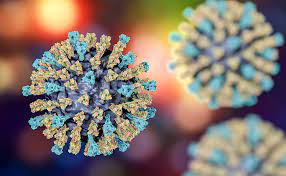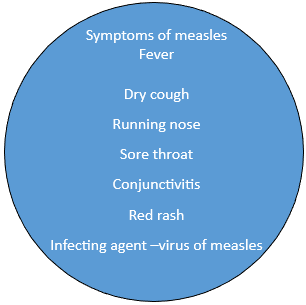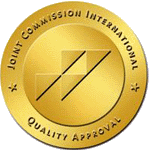ATTENTION! THE BEGINNING OF SPRING IS THE SEASON OF HIGH INCIDENCE OF MEASLES!

According to the Ministry of Health of the Republic of Kazakhstan, since March there has been an increase in the incidence of measles in the country. Thus, according to Aizhan Esmagambetova, chief state sanitary doctor of Kazakhstan, since the beginning of the year 56 cases of suspected measles have been registered in the country (65% of cases have been registered since the beginning of March).
Most measles cases occur in the winter-spring period (January-May), with an increase in cases every 2-4 years.
Measles is an acute infectious disease of viral etiology with a high rate of contagiousness (90%). That is, each patient can infect 9 out of 10 people who have not been vaccinated against measles who have had contact with him.
Before the introduction of mass vaccination against measles, measles was predominantly contracted by children between the ages of 2 and 5; much less often by adults who had not contracted the disease in childhood.
Measles in adults occurs in young people who have not had measles before and usually have not been vaccinated with measles vaccine. It develops severely, often with measles pneumonia and bacterial complications.
Persistent immunity develops after the disease.
Incubation period averaged 8-14 days.
The source of infection is a measles patient in any form, who is contagious to others from the last days of the incubation period (last 4 days) to the 4th day of eruptions (from the 5th day of eruptions the patient is considered not contagious).
The route of transmission is airborne.
In addition to high contagiousness, the danger of measles is characterized by serious complications such as pneumonia (pneumonia) and encephalitis (inflammation of the brain membranes). In cases of late medical attention and severe comorbidities, these can lead to death.
The symptoms:
First signs: general malaise, fever, headaches, running nose, sore throat, photophobia, red eyes, conjunctivitis, cough.
Main signs: white and red spots in the oropharynx; rash all over the body, spreading from the head down to the lower torso and legs.

Basic recommendations for the prevention of Measles:
- Vaccinate children against measles in a timely manner, regularly check the child's vaccination status (first vaccination at age 1, second at age 6);
- If your child has not been vaccinated against measles for certain reasons, it is necessary to limit visits to public places (cultural events, playgrounds in shopping malls, etc.);
- If the first symptoms of the disease appear, you should see a doctor;
- If a doctor diagnoses measles, you should inform the kindergarten or school (so that measures can be taken to prevent the spread of the disease to other children and adults).
- If the child/adult is not hospitalized, follow all the doctor's prescriptions for treatment at home.
The only effective protection against measles is VACCINATION!
Remember, it's always easier to prevent a disease than to treat it!




